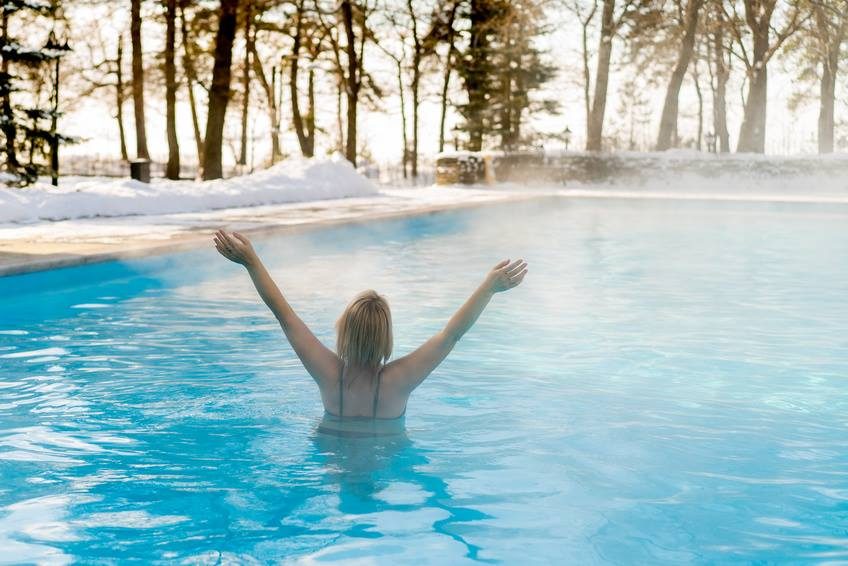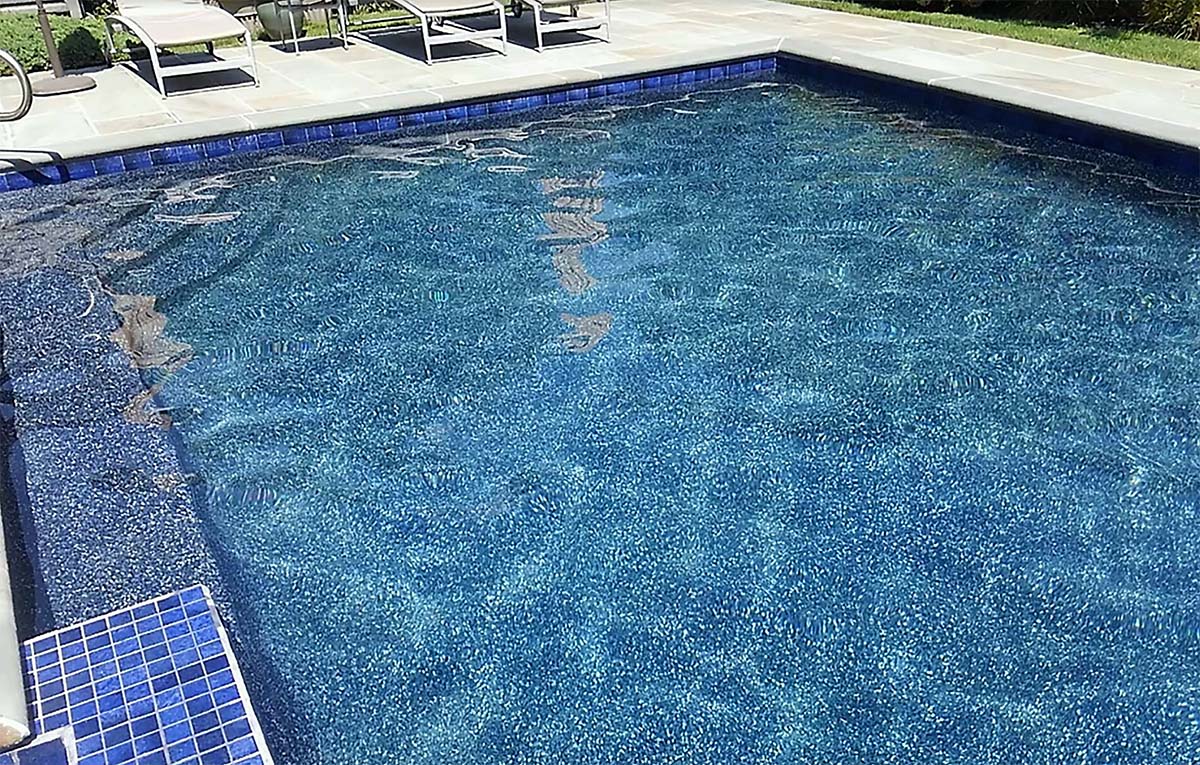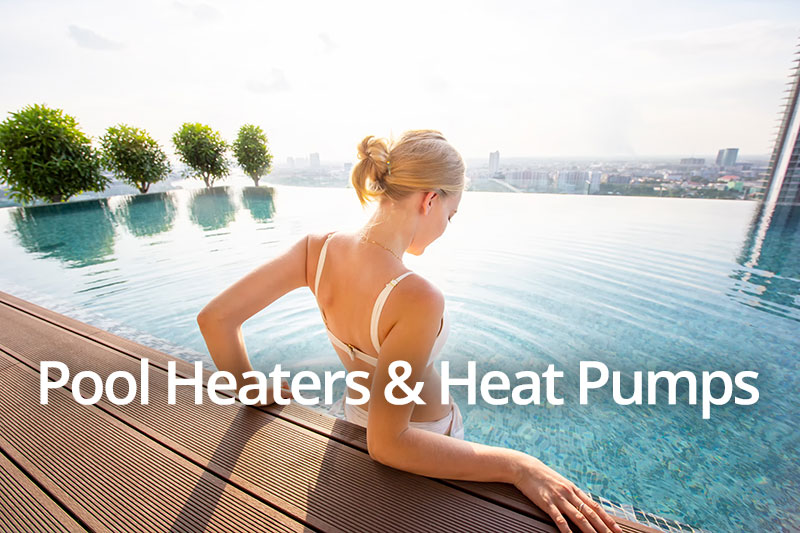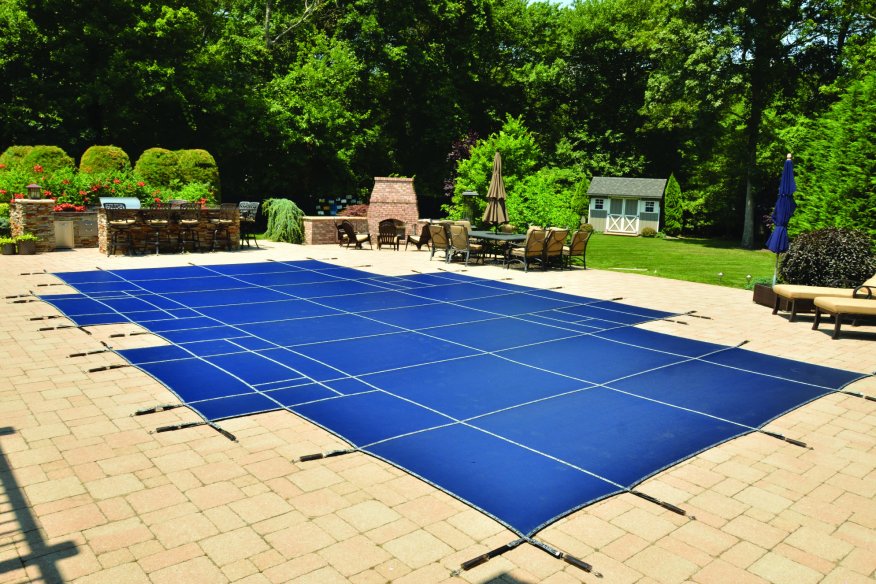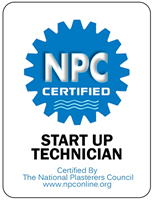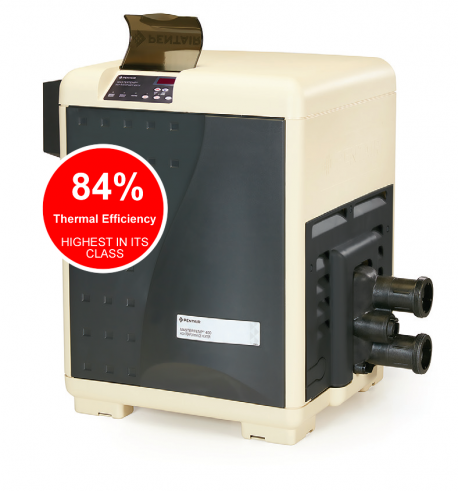 Sun’s still out. Workday is over. You’re ready for a relaxing dip in your pool. But brrrr, temperatures are dropping and your pool has suddenly gone from a relaxing oasis to a chill-inducing, goose bump-producing pool. Time to close up your pool for the winter? No, time to turn on your swimming pool heater!
Sun’s still out. Workday is over. You’re ready for a relaxing dip in your pool. But brrrr, temperatures are dropping and your pool has suddenly gone from a relaxing oasis to a chill-inducing, goose bump-producing pool. Time to close up your pool for the winter? No, time to turn on your swimming pool heater!
How do they work?
Swimming pool heaters work by transferring heat to your pool water through a device called a heat exchanger. Heat exchangers allow your pool water to be warmed by exposing the water to a source of heat as it is pumped through the pool heater. The heat source used to warm the water can vary as there several different types of heating technologies available, such as gas heaters, heat pumps, and hybrid heating technology. Although it seems complicated, choosing the right heating solution for your lifestyle doesn’t have to be. You know you want your pool to be ready when you are, but which heater is sweeter? Let’s dive in….
Three Ways to Swim Warm and Wonderfully.
Gas Pool Heater
Uses either natural gas or propane to generate heat. A great option if you live in an area that has access to low-cost natural gas or propane fuel, high electricity costs, or if you want your pool heated as fast as possible. Also great for pools in colder climates.
The Strengths:
- Lower initial purchase price
- Consistent performance in all climates
- Fast heat-up times
- Quiet operation
- Remote control via automation
The Trade-Offs:
- Can be higher cost to operate
- Can consume large amounts of gas
- Lower efficiency compared to heat pumps
Pool Heat Pump
Uses electricity to efficiently move heat from the air to your pool water, but takes longer to heat than a gas heater. Great option if you live in an area with low electricity costs, moderate climate, or do not have access to natural gas or propane.
The Strengths:
- Highly efficient; lower cost to operate
- Environmentally friendly
- Long service life and dependable operation
- Remote control via automation
The Trade-Offs:
- Heating performance is related to air temperature and humidity
- Higher initial purchase price
- Sound level may be higher than a gas heater
Hybrid Heating Technology
Combines the fast heating ability of a gas heater with the efficiency of a heat pump. And Pentair has the world’s first and only hybrid heating solution.
The Strengths:
- Faster heat-up time than a heat pump
- More efficient than a gas heater
- Can operate at low air temps
- Environmentally friendly
- Long service life and dependable operation
- Remote control via automation
The Trade-Offs:
- Higher initial purchase price
- Larger footprint than a gas heater
- Installation requires both gas and electrical connection
Choosing the Right Heating Solution for You
Now that we know the strengths and trade-offs of each pool heating technology, you may be asking, ‘but how do I choose the right heating solution that is right for me?’ We are glad you asked…
First things first, there are a number of factors that go into selecting the right heating technology for your pool and lifestyle, but do contact and work with your trusted local pool professional. Pool heaters and heat pumps are highly technical and should never be installed by anyone other than your handy-dandy, licensed pool pros at Pools And Spas Service, Inc.
3 factors to consider in your heating solution purchase:
- Size of Heater. Pool heaters and heat pumps are sized based on their heating capacity which is measured in British Thermal Units (BTUs). A BTU is a measure of how much energy is required to heat 1 gallon of water by 1F. Most heat pumps can deliver between 100,000 – 150,000 BTUs depending on their size and most gas pool heaters are sized between 175,000 – 400,000 BTUs.
- Geographic location, availability of gas, and electricity costs in your pool location are all factors in selecting a pool heater or heat pump. In general, heat pumps thrive in areas with mild to warm climates where electricity costs and low to moderate. Gas heaters aren’t heavily impacted by environmental conditions and can be a great option in cooler climates where gas prices are low to moderate.
- Size and features of your pool. The size of your pool may dictate which system you need. We recommend working with your pool professional to identify the right pool heater for your backyard oasis.
Will adding a pool heater break my bank?
We won’t hang you out to dry: having a pool heater can be a significant investment, but you built your pool to enjoy it when you want to, right? One of the biggest factors associated with expenses associated with operating your pool heater is efficiency.
The more efficient a gas pool heater is, the lower the cost is to operate it, and the less time it needs to run to deliver the same amount of heat for your pool water. What does this mean? If you buy $1.00 worth of gas and your heater is 82% efficient, your heater puts $0.82 worth of heat into the water. Likewise, at 96% efficiency, the ETi 400 would put $0.96 worth of heat into the water for the same price. The more efficient the heater is, the less it costs to operate.


